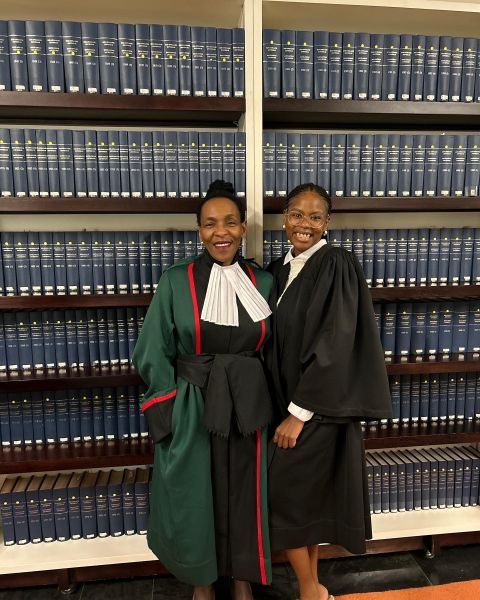ANNOUNCING THE NEW NOTRE DAME FELLOW FOR 2025 - 2026, LIHLE BULULU

Lihle Bululu has been nominated to be a fellow in 2025 - 2026 for a new fellowship arrangement currently being finalised between ND Law and the Constitutional Court Trust. Lihle was born and bred in a small town called Tsomo in the Eastern Cape. Lihle holds a Bachelor of Laws degree from the Nelson R. Mandela School of Law, University of Fort Hare (UFH), class of 2020. While a clerk at the Constitutional Court from July 2021 to June 2023, she served under Former Chief Justice Mogoeng, former Deputy Chief Justice Maya (currently Chief Justice), Justice Madlanga (currently Acting Deputy Chief Justice), and Acting Justice Madondo. Lihle is currently a second-year candidate legal practitioner in the dispute resolution department at Edward Nathan Sonnenbergs.
Prior to her appointment at the Constitutional Court, Lihle was first introduced to human hights law in 2019 through her LLB studies and her subsequent participation in an intensive Advanced Human Rights Course on judicial enforcement of socio-economic rights in Africa, hosted by the Centre on Human Rights, University of Pretoria. Fascinated by this area of law, she did her research on the objectives it seeks to achieve. She came to know and understand that it is the area of law that advocates for the advancement of basic human rights and serves as a voice for the marginalised. She knew then that this is what she wanted to do — she wanted to be part of a world whose focus is to make a difference in the lives of ordinary citizens, transform socio-economic rights and access thereto, to create a space where the largely disadvantaged have hope in the Constitution and what it was intended for.
Lihle describes what she hopes to achieve through the fellowship:
I am beyond elated to have been awarded the fellowship to pursue a human rights LLM at Notre Dame. I consider myself a great proponent of deliberative democracy and constitutionalism. My passion for human rights turns on achieving social justice through redistributive policies and policies that are centred on addressing inequality and/or status-based disparities such as race, gender and disability. I have no doubt that an LLM from Notre Name focusing on International Human Rights Law will help me achieve this.
